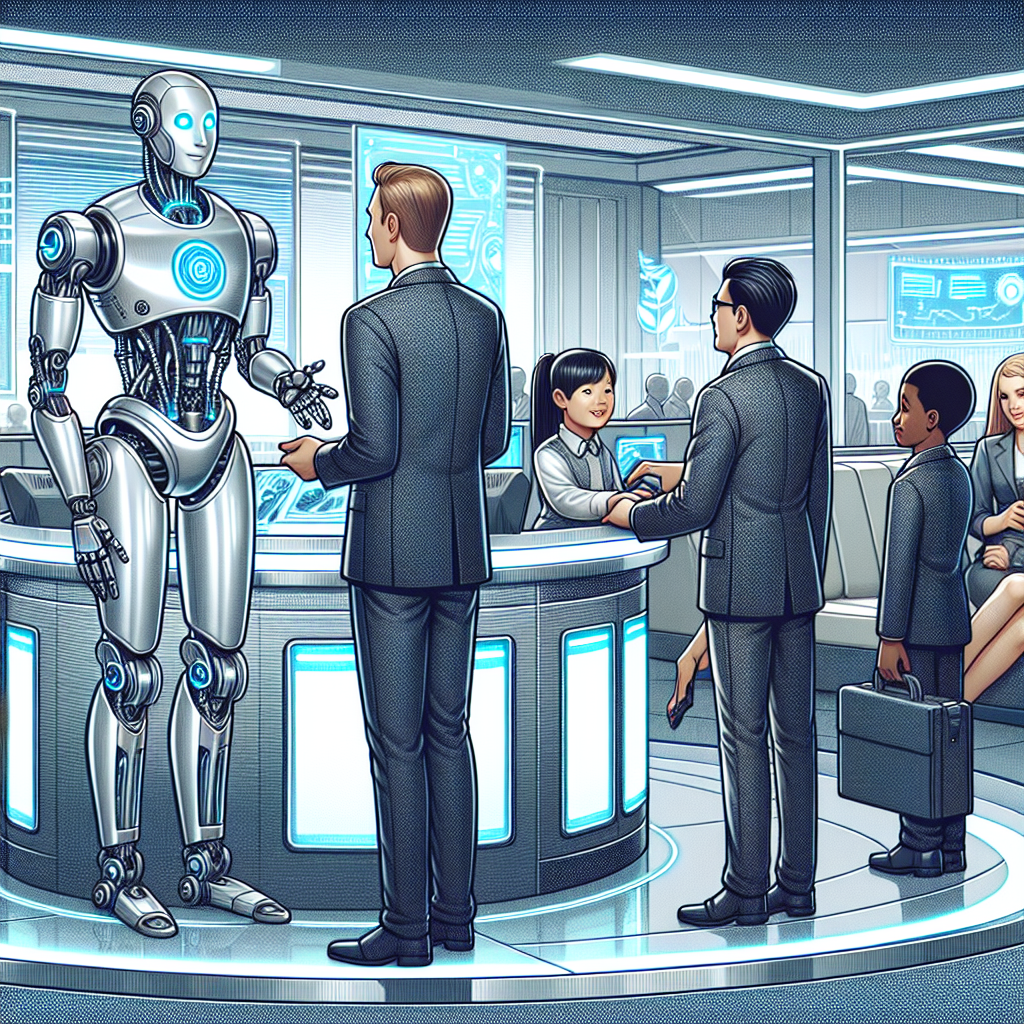
In contemporary businesses, embracing digital transformation while sustaining customer satisfaction is pivotal. Customer engagement, particularly in voice-based interactions, has considerably transformed over the years and voice-based customer effort prediction emerges as a crucial tool. This innovative strategy can significantly influence customer experience and ultimately foster customer loyalty.

Essentially, the concept of voice-based customer effort prediction is based on evaluating the effort a customer has to exert to achieve their desired result from the interaction with a business. Various factors including customer query complexity, the efficiency of voice-based user interface, and the quality of automated responses affect this effort level. By understanding and predicting this effort, companies can streamline their operations and improve their customer service.
However, it doesn't end with merely predicting customer effort. The true advantage lies in minimizing this effort to deliver a smoother, more effective customer experience. The ultimate goal is to make each interaction seamless and straightforward for customers, thereby enhancing their overall interaction with your brand. In doing so, companies not only boost customer satisfaction but also foster customer loyalty.
Fortunately, various strategies and tools are available to predict and lessen voice-based customer effort. They range from data analytics solutions and Artificial Intelligence (AI) to Customer Relationship Management (CRM) tools. These aid companies in understanding their customer requirements better and tailoring their services accordingly.
Voice-based effort prediction and minimization are not just effective ways to improve the immediate customer experience but also serve as long-term strategies to build a stronger, more loyal customer base, a key to business success in an era of digital transformation.
While traditional secretarial tasks relied on manual effort, AI receptionists leverage advancements in voice-based technology to revolutionize customer service. Topping the charts among these technologies are Machine Learning (ML) and Natural Language Understanding (NLU), intrinsic tools that facilitate a frictionless and insightful customer interaction.
NLU, an offshoot of Natural Language Processing (NLP), enables AI receptionists to comprehend and interpret human language in a meaningful way. NLP allows the AI to understand not only the spoken words but also their context, sentiment, and intent. The ability to interact with customers as a human would largely diminishes the difficulties that can accompany automated systems.
Complementing NLU, Machine Learning empowers AI receptionists to learn and enhance their performances over time. Using data from previous customer interactions, the AI system can make probabilistic assumptions to accurately predict user requests. This ML capability permits the adaptive handling of customer inquiries, leading to a lower Customer Effort Score (CES).
In essence, these two fundamental technological pillars enable AI receptionists to predict and minimize customer effort effectively. Voice-based AI technologies can discern customer intents beyond the superficial level, thanks to NLU. Meanwhile, Machine Learning equips these systems with the ability to learn and adapt, rendering continuous improvements in customer interactions.
Understanding the foundations of these technologies is crucial in not just managing but truly enhancing the customer experience. The advent of sophisticated, voice-based customer service ushers in the future of automated yet personalized conversational experiences, incentivizing reductions in customer effort and fostering customer satisfaction in the long run.
In the age of digitization, artificial intelligence (AI)-based solutions are increasingly becoming integral to operational efficiency and customer satisfaction in various sectors. Voice-based customer effort prediction and minimization strategies are a key aspect of this digital revolution, enhancing the customer experience by offering efficient, AI-led interactions. Let us delve into a few case studies that explain this transformative process vividly.

Our first case study involves a prominent United Airlines. During the COVID-19 pandemic, the company experienced an unprecedented surge in customer service calls - a situation which their conventional customer service setup wasn't equipped to handle efficiently. To cope, they turned to AI, integrating AI receptionists into their system. This addition ensured quicker, more efficient responses to customer queries, significantly boosting customer satisfaction and minimizing customer effort.
Next is the story of a leading multinational financial services company, American Express. Prioritizing customer convenience, the company embraced AI to transform its customer service model through an AI assistant. This sophisticated system not only fielded and resolved customer queries efficiently but also helped in predicting future customer effort based on their interaction history, thereby allowing the system to cater to customer needs proactively.
These successful integrations of voice-based AI receptionists specifically show across the board enhancements in operational efficiency and customer satisfaction. By leveraging AI's power, businesses were not only able to provide faster response times and round-the-clock customer service, but also gain invaluable insights into customer behavior and preferences.
In essence, the voice-based AI strategy is rapidly becoming an indispensable tool for businesses globally. It not only helps in streamlining customer service operations but also progresses towards a more intuitive, personalized customer service approach, ultimately fostering brand loyalty.
With the incredible advances in Artificial Intelligence (AI) technologies, businesses are swiftly redefining their customer service strategies. One groundbreaking consequence of such innovation is the rise of AI Receptionists, intelligent voice-based systems capable of predicting customer effort and streamlining the service process. By strategically integrating these systems into customer service operations, organizations can significantly reduce the efforts of their customers while amplifying their overall satisfaction and loyalty.
Automation of Common Queries is a key strategy in minimizing customer effort. Many customer concerns are routine or FAQ-based and can be effectively managed by an AI Receptionist. Differing from traditional IVRs, AI receptionists can comprehend and respond to customer queries in a much more interactive, intuitive and Human-Like manner. Businesses can utilize advanced intent recognition and predictive analytics capabilities of platforms like IBM Watson Assistant to provide instant, accurate answers to common customer inquiries, saving their valuable time and effort.
An equally vital strategy is the Seamless Call Routing. The complexity and time taken to connect a customer to the appropriate service representative can often escalate customer effort and frustration. AI receptionists, armed with advanced speech recognition and natural language processing technologies, can make this process effortlessly seamless. By accurately comprehending the caller's needs, AI receptionists can intelligently route the call to the most suitable agent or department. This eliminates the often cumbersome process of navigating complex menu systems thus, creating a smoother customer experience. Services like Talkdesk and Tenfold provide rich AI-fueled call routing solutions that businesses can leverage.
To conclude, strategies like automation of common queries and seamless call routing, fueled by AI receptionists, play a monumental role in enhancing customer experience through significant reduction in customer effort. As technology forges ahead, businesses willing to adopt and evolve with these advances will undoubtedly lead the path to customer satisfaction and loyalty.
With the advancement in technology, the future of customer service seems more exciting than ever, particularly in the domain of voice-based customer service. Advancements in Artificial Intelligence (AI) and machine learning have opened new avenues to enhance and redefine the customer care experience. Companies are increasingly looking toward AI-driven voice-assisted platforms to predict customer effort and provide personalized, effective solutions.

One of the main future trends we can expect to see is the use of these voice-based AI systems for proactive customer support. This means that, before a customer even encounters a problem, the AI system will predict it using pattern recognition and data analysis, and either resolve the issue automatically or guide the customer through the resolution process. This strategy significantly reduces customer effort by addressing issues even before they become apparent to the user.
Improvements are also expected in the area of contextual understanding. The more advanced AI voice-based systems of the future will not only be better at understanding natural language but also excel in interpreting the customer's emotions, thanks to emotional AI. The AI system could use these emotional cues to adapt its responses, offering a more human-like and empathetic service experience.
A step further, we might see AI voice-based customer service becoming truly conversational. Instead of relying on pre-programmed responses, future systems will be able to learn from past interactions and ongoing conversations to generate responses in real time.
The potential changes in voice-based customer service will necessitate businesses to stay ahead of the curve, adopting and integrating these advancements into their customer service practices. By preparing for the future, companies can ensure they continue to deliver high-quality, personalised experiences that prioritise the needs and satisfaction of their customers.
Start your free trial for My AI Front Desk today, it takes minutes to setup!








